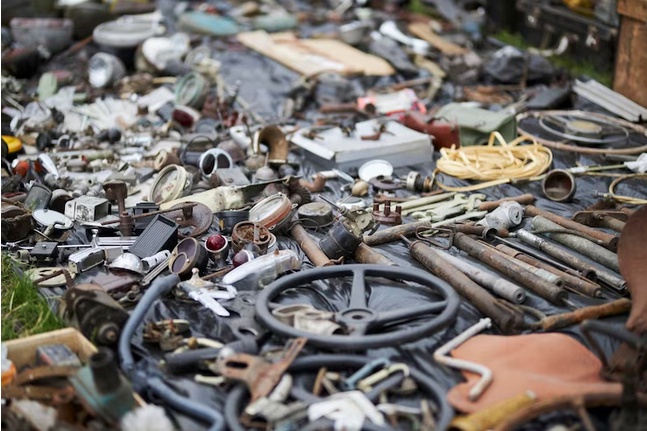Introduction
With the increasing reliance on portable electronic devices, electric vehicles (EVs), and renewable energy storage systems, batteries have become an integral part of modern life. However, as the number of batteries in use continues to soar, so does the environmental impact of their improper disposal. Old battery disposal poses significant challenges, including the release of hazardous materials into the environment and the depletion of valuable resources. This article explores the environmental impact of old battery disposal, highlighting the importance of proper recycling and the adoption of sustainable practices.
Hazardous Materials in Batteries
Batteries contain a variety of hazardous materials, including heavy metals like lead, cadmium, and mercury, as well as lithium and other chemicals. When disposed of improperly, these hazardous materials can leach into the soil and water, posing serious environmental and health risks. Leaching can contaminate groundwater and soil, potentially entering the food chain and affecting plants, animals, and humans.
Landfilling and Incineration
Old batteries are often disposed of in landfills or incinerated, which can exacerbate the environmental impact. In landfills, batteries can corrode and release toxic substances, causing pollution in the surrounding area. Incineration, on the other hand, releases harmful pollutants and greenhouse gases into the atmosphere, contributing to air pollution and climate change.
Resource Depletion
Battery production relies on the extraction of valuable resources, such as lithium, cobalt, nickel, and manganese. Improper disposal of old batteries means that these valuable materials are not recovered and reused, leading to increased demand for new raw materials. Extracting and processing these resources can have significant environmental consequences, including habitat destruction, water pollution, and increased carbon emissions.
Greenhouse Gas Emissions
The improper disposal and incineration of old batteries contribute to greenhouse gas emissions, primarily through the release of carbon dioxide and other pollutants. Greenhouse gases trap heat in the atmosphere, leading to global warming and climate change. The carbon footprint associated with battery production and disposal further exacerbates the environmental impact of old battery disposal.
Soil Contamination
Leaching of hazardous materials from improperly disposed batteries can contaminate soil, making it unsuitable for agriculture and reducing its ability to support plant growth. Soil contamination affects ecosystem health, disrupts nutrient cycles, and can lead to the bioaccumulation of toxins in plants and animals.
Water Pollution
When batteries break down in landfills, the hazardous substances they contain can seep into groundwater and nearby water bodies. This pollution poses a threat to aquatic life and can have cascading effects on entire ecosystems. Additionally, improper disposal of batteries in bodies of water can directly release toxic chemicals, further polluting the aquatic environment.
Impact on Wildlife
The environmental impact of old battery disposal is not limited to terrestrial and aquatic ecosystems; it also affects wildlife. Animals may ingest batteries or contaminated food and water, leading to poisoning and even death. Additionally, exposure to heavy metals and other toxic substances can disrupt the reproductive and immune systems of wildlife, further affecting their populations.
Health Implications for Humans
The environmental impact of old battery disposal has direct implications for human health as well. Contaminated soil, water, and air can expose communities living near landfills or incineration facilities to harmful chemicals. Long-term exposure to these hazardous substances can lead to various health issues, including respiratory problems, neurological disorders, and developmental abnormalities, particularly in children.
Solutions and Recycling Benefits
Battery Recycling
Battery recycling is a vital solution to mitigate the environmental impact of old battery disposal. Recycling processes enable the recovery of valuable materials, such as lithium, cobalt, and nickel, reducing the need for new resource extraction. Additionally, recycling prevents hazardous materials from entering landfills or being incinerated, minimizing soil and water contamination as well as air pollution.
Safe Disposal
Encouraging proper and safe disposal of old batteries is crucial. Implementing dedicated collection points and awareness campaigns can help educate the public about the importance of recycling and provide easy access to recycling facilities.
Sustainable Practices
Adopting sustainable practices, such as designing batteries with recyclability in mind and promoting eco-friendly alternatives, can reduce the environmental impact of battery production and disposal. Manufacturers can also explore the use of more sustainable materials to make batteries more environmentally friendly.
Government Regulations
Stringent government regulations and policies are essential in promoting responsible battery disposal and recycling. By enforcing proper waste management practices, governments can ensure that batteries are handled responsibly and that recycling becomes the norm.
Conclusion
The environmental impact of old battery disposal is a significant concern that requires immediate attention. Hazardous materials, greenhouse gas emissions, and resource depletion associated with improper battery disposal pose serious threats to the environment, wildlife, and human health. To mitigate these challenges, battery recycling emerges as a crucial solution. By embracing recycling, encouraging proper disposal practices, and adopting sustainable measures, we can minimize the negative impact of old battery disposal and work towards a more environmentally friendly and sustainable future. As individuals, businesses, and governments collectively address this issue, we can pave the way for responsible electronic waste management and protect our planet for generations to come.


No comments yet